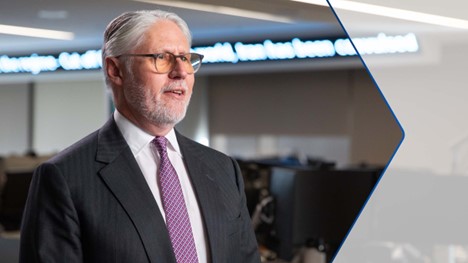Here at Wealthwise, we are sure your communications team has this more than covered but, equally, we are here to help. So, if you think the following could be helpful when working with clients – and always, of course, with the blessing of your compliance department – please feel free to just copy-and-paste all or part of it
An introduction to wealth management
What is a wealth manager?
A wealth manager will use their skill and experience to invest your money in a way that helps preserve and grow your wealth over time. They will take time to understand your financial plans and ambitions, building a portfolio that is right for your individual circumstances. They will find the right balance of risk and reward to ensure you meet your financial goals, but with the smoothest ride possible.
“A good wealth manager will not only be a capable steward of your money, they will be open and transparent about how they do it.
Why use a wealth manager?
Financial planners are generalists, while wealth managers are specialists. Your financial adviser will deliver a holistic financial plan, covering pensions, insurance, investments and tax planning – but they will often outsource the investment management to an expert – the wealth manager. Financial markets are complex and volatile beasts and it takes significant resources to understand them in detail. Wealth managers can command such resources to make the right judgements and avoid key risks.
What makes a good wealth manager?
Before they invest a single penny of your capital, a good wealth manager will ask you about your circumstances in-depth. They will want to understand your financial ambitions and the resources you have to achieve them. They will need to understand your financial obligations and your capacity to take financial risk.
A good wealth manager will not only be a capable steward of your money, they will be open and transparent about how they do it. They should be able to give you clear information on how and where they are investing your money in a way you fully understand. They should be able to answer all your questions in a way that makes sense to you.
Wealth managers will usually be looking after your money for many years, and across multiple generations. They will see you through different life stages. The path of wealth accumulation rarely runs smoothly and therefore your wealth manager should be adaptable, understanding you, your family dynamic and your financial goals, rather than just offering an off-the-shelf solution.
How do I choose a wealth manager?
There are a number of criteria for choosing a wealth manager. High fees will erode your capital over time and may mean your portfolio does not grow as fast. As result, you need to understand how much you will pay for the services you receive and make a judgement on whether that is worth it.
You should also look at the range of products and services on offer to ensure there is one that meets your needs. Equally, it is worth comparing performance between different managers. This has become easier in recent years, with groups such as Defaqto allowing you to assess how individual wealth managers compare to their peers managing similar portfolios. Performance is by no means the only criteria, but it can help you build a shortlist.
You can also look at the communication and support provided by different wealth managers. This will be unique to every individual and you will need to decide the style that suits you. You may want a wealth manager who gives you lots of detail about financial markets or you may prefer a more back-to-basics approach.
It is worth pointing out, however, that while all these factors are important, there is no substitute for personal chemistry. You are entrusting your financial future to your wealth manager and you need to be comfortable that you can work with them over the long term.
What questions should I ask a wealth manager?
A wealth manager should help you set the parameters of your relationship. This will include the extent to which you want to be involved in the management of your finances – but also whether you want your family to be involved; or perhaps other advisers, such as your lawyer, financial planner or accountants.
It is always worth asking how a wealth manager works with their other clients and, if possible, talking to some of those clients yourself to understand their experiences. Finally, does a wealth manager have a track record of dealing with clients like you? Many wealth managers now run regular seminars and this can be a useful way to test the waters with a new adviser.
How do I get the most out of my wealth manager?
Your wealth manager is there to support your long-term financial ambitions. They should be able to answer your questions and help you understand how they are managing money on your behalf. Ask questions – particularly if you are worried about market volatility. They should be able to put it all into better context – thereby, for example, helping you to avoid selling out of, or buying into, investments at an inappropriate time.










